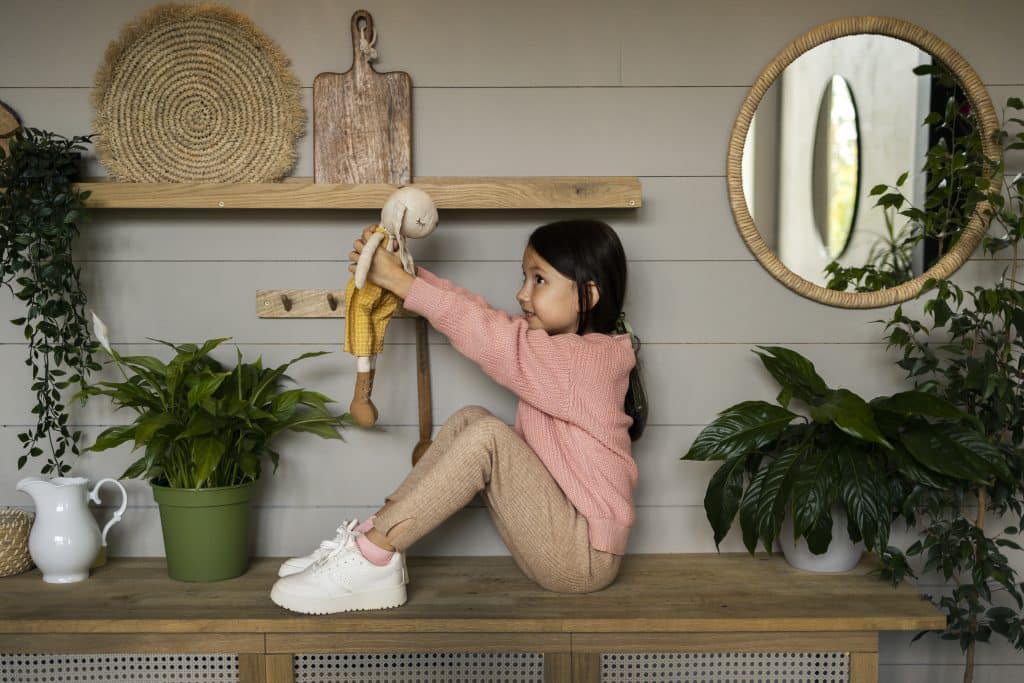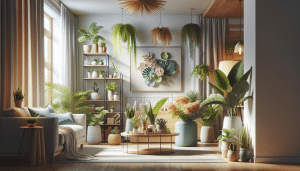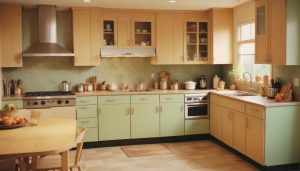Home Decor Ideas That Reflect Personality
Samantha Lee August 20, 2025
Your home is more than a physical space; it is a reflection of who you are. In 2025, one of the strongest interior design trends is personal expression through decor. Rather than following cookie-cutter styles, homeowners are embracing home decor ideas that reflect personality—designing rooms that tell unique stories, highlight individual values, and create emotional comfort. This shift aligns with broader cultural trends around self-expression and wellness, where personal identity influences fashion, digital presence, and even workspaces. According to a 2024 Houzz trend survey, 74% of homeowners reported wanting decor that feels “authentic to their personality” instead of following mass-market aesthetics.

The Rise of Personality-Driven Home Decor
In the past, interior design often followed rigid trends—minimalism one year, industrial chic the next. Today, the focus is personalization. Interior designers and psychologists alike emphasize that surrounding yourself with meaningful objects can improve mental well-being and enhance creativity. Research published in the Journal of Environmental Psychology shows that personalized spaces increase feelings of comfort, reduce stress, and boost productivity. In a world where many people spend more time at home—working remotely, socializing digitally, and investing in wellness—creating environments that reflect individuality has never been more relevant.
Emerging Trends in Personality-Focused Home Decor
1. Maximalism with a Purpose
Minimalism dominated the last decade, but 2025 is witnessing a resurgence of maximalism. Unlike clutter, modern maximalism is intentional: layering bold colors, patterns, and textures that express character. For example, someone with a vibrant personality might incorporate patterned wallpaper, vintage art, and eclectic furniture to create a lively atmosphere. Designers note that maximalism allows homeowners to celebrate their collections—whether travel souvenirs, books, or art pieces—in a way that feels curated rather than chaotic.
2. Biophilic Design with Personal Touch
Biophilic design, which connects interiors with nature, continues to gain traction. But homeowners are customizing it to reflect personal values and lifestyles. Instead of simply adding plants, people are incorporating herbs they cook with, calming water features, or even terrariums that mirror their favorite landscapes. A study by Harvard T.H. Chan School of Public Health found that plants and natural elements improve air quality and mood, making this trend both aesthetic and functional. By choosing greenery that resonates personally, such as bonsai for patience or lavender for relaxation, individuals make biophilic design an extension of themselves.
3. Heritage and Storytelling Decor
In an era of mass production, there is growing appreciation for heritage and cultural storytelling in interiors. Homeowners are showcasing family heirlooms, handmade crafts, and decor rooted in cultural traditions. This approach not only personalizes a space but also preserves identity and history. For example, a living room might feature textiles from one’s heritage, photographs of ancestors, or handwoven rugs passed down through generations. Designers predict that storytelling decor will remain one of the strongest ways to create homes that truly reflect personality.
4. Color Psychology in Personalized Spaces
Colors play a major role in personal expression. While trend reports often highlight “Color of the Year,” personality-driven decor emphasizes hues that resonate emotionally. People who want calm might gravitate toward muted blues and greens, while those with energetic personalities may prefer warm oranges and yellows. Research from Frontiers in Psychology confirms that color influences emotions, memory, and creativity, making it a powerful tool in shaping personality-infused spaces. In 2025, custom color palettes tailored to mood and identity are replacing one-size-fits-all design rules.
5. Multifunctional Spaces with Personality
With remote work and flexible lifestyles, multifunctional spaces remain essential. But the difference in 2025 is how people personalize them. A home office might include motivational artwork, family photos, or hobby-related items that reflect individuality. Workout corners are decorated with personal affirmations or favorite music setups. These multifunctional spaces are no longer generic—they are tailored to reflect both practicality and personality.
6. Sustainable Choices That Reflect Values
Sustainability is not just a global trend; it is also a reflection of personal values. Homeowners committed to eco-conscious living are choosing recycled materials, second-hand furniture, and energy-efficient lighting. According to a 2024 Forbes report on sustainable design, consumers increasingly view eco-friendly choices as an expression of their identity. By integrating sustainability into decor, individuals create homes that not only reflect their personalities but also their ethical commitments.
Practical Guide: How to Design Home Decor That Reflects Personality
- Start with Self-Reflection: Think about what makes you feel at home—colors, textures, memories, or cultural traditions. Your decor should represent these values.
- Choose Signature Pieces: Identify two or three standout items (artwork, furniture, or heirlooms) that capture your personality and build around them.
- Mix and Match Styles: Don’t be afraid to combine styles. A modern sofa can work beautifully with vintage lighting if it reflects your taste.
- Add Personal Art: Whether it’s your own photography, travel sketches, or digital artwork, displaying personal creations makes a space truly yours.
- Play with Color: Use a color palette that resonates with your emotions rather than following trends. Test shades with small accessories before committing to walls.
- Tell a Story: Arrange objects in a way that narrates a journey—your travels, milestones, or passions.
- Evolve Over Time: Personality isn’t static. Update your decor as your life changes, ensuring your home grows with you.
Why Home Decor That Reflects Personality Matters
Beyond aesthetics, homes designed with personality provide psychological benefits. Personalized spaces foster comfort, belonging, and creativity. They also serve as visual affirmations of identity, reminding individuals daily of their values and aspirations. For families, such spaces encourage bonding by incorporating shared traditions and memories. For individuals, they offer a safe haven where authenticity thrives.
Looking Ahead: The Future of Personality in Home Design
As technology advances, personalization will expand further. Augmented reality apps now allow homeowners to preview decor choices virtually, helping them craft spaces that truly reflect identity. AI-driven design platforms are also creating custom layouts based on user preferences. Yet, the core trend remains human: homes that are meaningful, authentic, and personal. Designers predict that in the next decade, interior design will become less about following collective trends and more about creating individualized environments that adapt to personal growth.
Conclusion
In 2025, home decor ideas that reflect personality are reshaping the way people think about interiors. From maximalism and biophilic design to heritage storytelling and sustainable choices, homeowners are prioritizing authenticity over conformity. Personalized decor creates more than visually appealing rooms; it builds spaces that nourish identity, values, and well-being. As this trend continues to grow, one thing is clear: homes are no longer just places we live in—they are living reflections of who we are.
References
- Environmental Psychology: https://nesslabs.com
- These Were the Top 7 Home Renovation Trends of 2024, According to Pros, https://www.bhg.com
- Can You Decorate and Clean Your Way to Happiness? https://www.vogue.com







